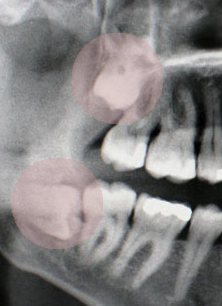What are Wisdom Teeth?
Wisdom teeth are the third set of molars that typically emerge between the ages of 17 and 25. Most people have four wisdom teeth, one on each side of the upper and lower jaw. However, some people may have fewer or even no wisdom teeth at all.
Why are They Called Wisdom Teeth?
Wisdom teeth are called such because they emerge later in life, typically when a person is in their late teens or early twenties, which is often considered the age of wisdom. However, there is also a theory that they are called wisdom teeth because they are the last teeth to emerge, and by then, a person is expected to have gained some wisdom.
Why Do We Have Wisdom Teeth?
The purpose of wisdom teeth is not entirely clear, but researchers believe that they may have been necessary for our ancient ancestors, who had larger jaws and ate a tougher diet. Today, wisdom teeth are often unnecessary and can cause problems for many people.
What are the Problems Associated with Wisdom Teeth?
When wisdom teeth emerge, they can cause a variety of problems, including:
-
Crowding: Wisdom teeth can push other teeth out of alignment, causing crowding and discomfort.
-
Impacted teeth: Sometimes, wisdom teeth do not emerge fully or at all, becoming impacted in the jawbone. This can lead to pain, swelling, and infection.
-
Infections: Wisdom teeth can be difficult to clean, making them more prone to infection and decay.
-
Cysts: Cysts can form around wisdom teeth that are impacted, which can damage nearby teeth and bone.
When Should Wisdom Teeth be Removed?
Not all wisdom teeth need to be removed, but in many cases, it is the best course of action. If you are experiencing pain or swelling, or if your dentist sees evidence of decay or infection, you may need to have your wisdom teeth removed. Additionally, if your wisdom teeth are causing crowding or other problems with your bite, your dentist may recommend removal.
What is the Procedure for Removing Wisdom Teeth?
Removing wisdom teeth is a common outpatient procedure that is typically performed under local anesthesia. If the teeth are impacted, your dentist or oral surgeon may need to make an incision in the gum and remove a small amount of bone to access the teeth. After the teeth are removed, you will need to follow your dentist’s instructions for aftercare, which may include pain medication, ice packs, and a soft food diet.
In Conclusion
Wisdom teeth can be a source of discomfort and pain for many people. If you are experiencing problems with your wisdom teeth, it is important to talk to your dentist about the best course of action. While not all wisdom teeth need to be removed, in many cases, removal is the best way to alleviate pain and prevent further problems.
Consult With Orthodontic Experts
Call or text us (303)428-3613 today to schedule a complimentary orthodontic consultation with one of our board certified orthodontic specialists today. At Cronin & Czarnik Orthodontics we always monitor the development of your wisdom teeth and can provide you with a referral to an oral surgeon or dentist at the appropriate time. The American Association of Orthodontics recommends scheduling your child’s first orthodontic consultation at the age of 7. However, we welcome both children and adults of all ages to our practice and look forward to meeting you!
